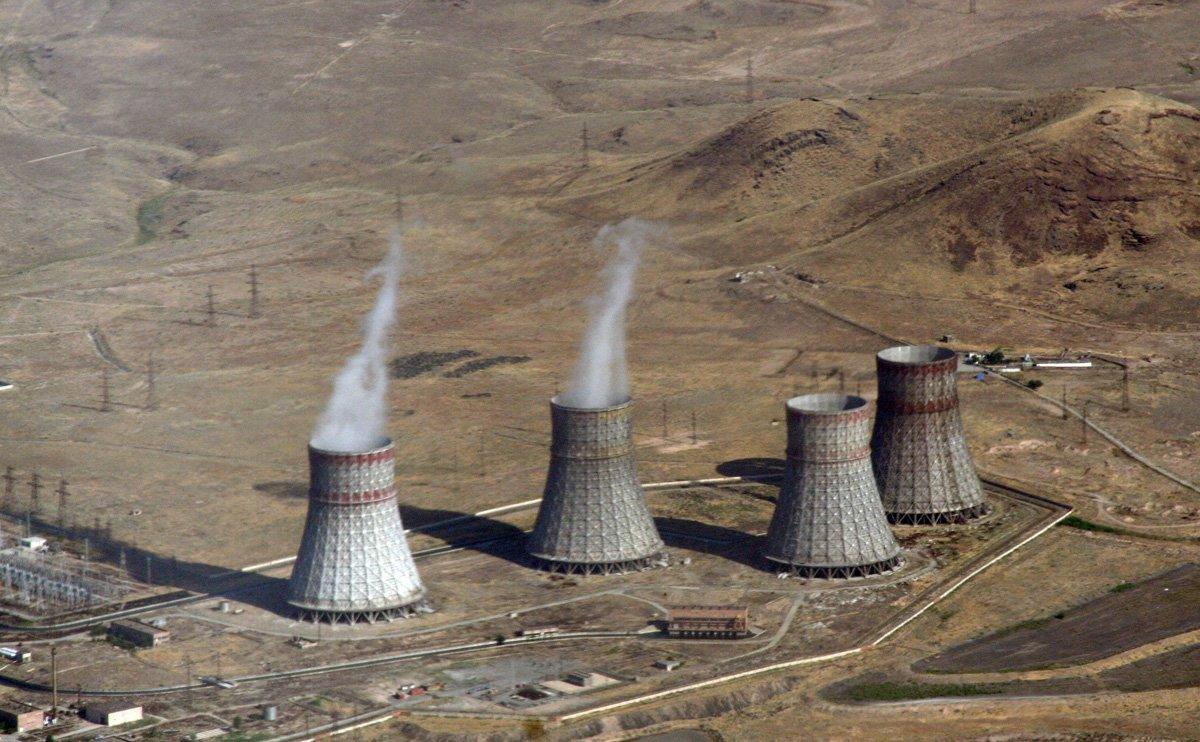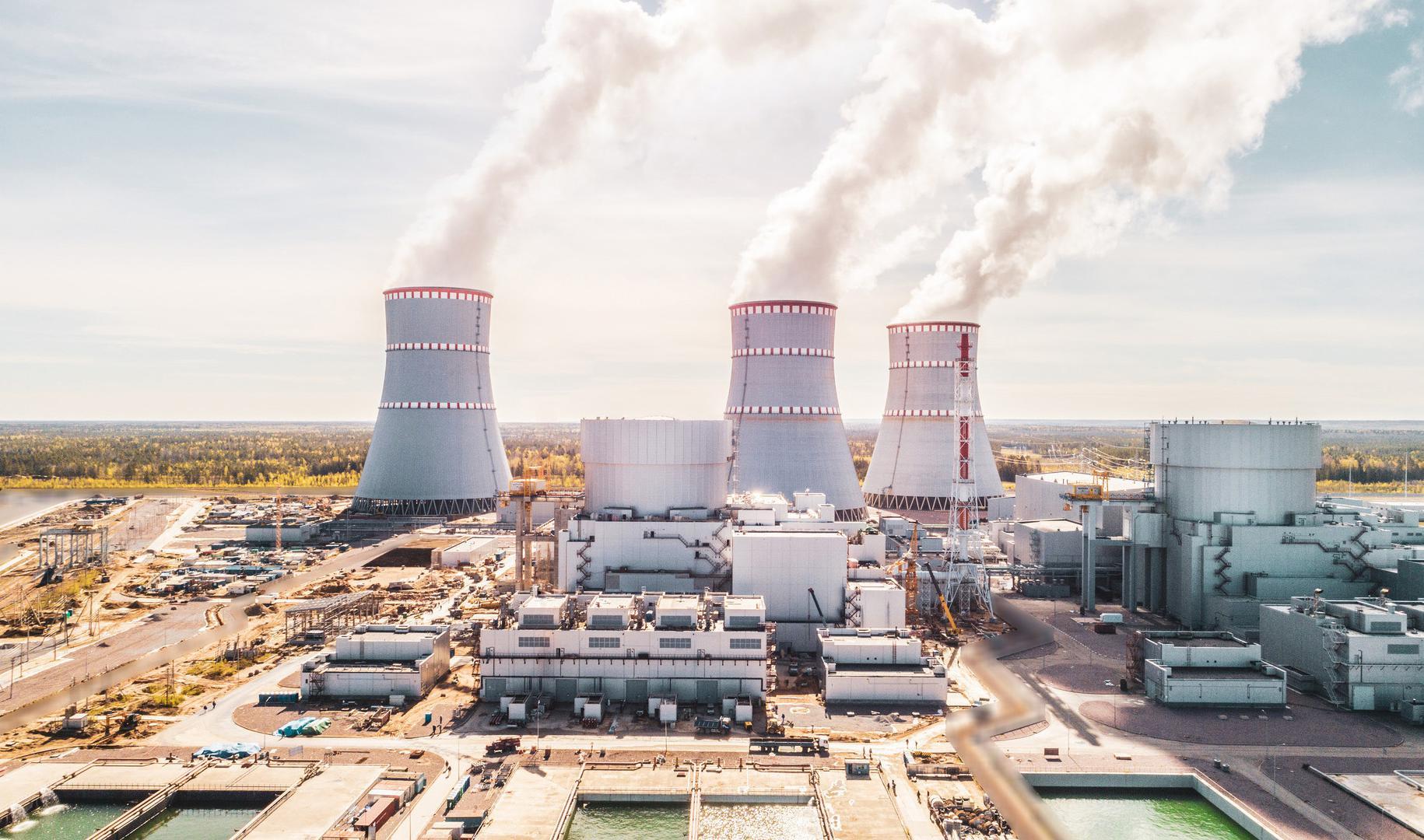US, Russia compete to shape Armenia's nuclear power future High stakes in Yerevan
The prospect of constructing a new nuclear power plant in Armenia may ignite intense rivalry between the United States and Russia within the energy sector. Recently, the Civilnet online publication reported that Armenia has approached the US with a request for a potential agreement that would facilitate the development of a nuclear facility in Armenia utilizing American technology.
According to the State Department, while specific details of the negotiations are not disclosed, the department is considering Armenia's request for a "123 agreement"—a legally binding framework for peaceful nuclear cooperation under Section 123 of the US Atomic Energy Act—and is reviewing it accordingly.
In a nutshell, to provide nuclear-related equipment or materials to another state, the United States must formalize an arrangement known as a 123 Agreement, named after Section 123 of the Atomic Energy Act, which delineates the terms of cooperation with other nations.
To date, the US has established such agreements with 48 countries. In a recent development, Armen Grigoryan, the Secretary of the Security Council of Armenia, disclosed in July that his country and the United States are in discussions regarding the construction of a new nuclear power plant. Grigoryan noted that "the ball is currently in the US court," indicating that Armenia is awaiting the completion of internal US procedures before substantive negotiations can commence.

Armenia-US cooperation, particularly in the domain of nuclear technology, is notably displeasing to Russia, which currently maintains control over Armenia’s nuclear sector. Armenia operates the Metsamor Nuclear Power Plant, which was originally slated for decommissioning in 2017.
However, its operational lifespan was extended, and in December 2023, the Armenian government signed a $65 million agreement with the Russian state corporation Rosatom to modernize and refurbish the plant, ensuring its operation until 2036.
Both Azerbaijan and Türkiye have called for the facility's closure. Azerbaijani President Ilham Aliyev has repeatedly criticized the Metsamor plant, asserting that it poses significant nuclear safety risks to the region. During a meeting with IAEA Director General Rafael Mariano Grossi last March, President Aliyev emphasized that the Metsamor plant represents a substantial threat to Azerbaijan, Türkiye, and the broader region, and he also raised concerns about Armenia’s alleged illegal trade in nuclear materials sourced from the facility.
Currently, the Metsamor Nuclear Power Plant operates on Russian nuclear fuel, meeting up to 40 per cent of Armenia’s domestic energy needs and enabling the country to export some electricity to Georgia and Iran. This substantial dependence on Russian energy underscores Moscow’s dominant position in Armenia’s energy sector, providing Russia with a significant leverage over Yerevan. Consequently, to avoid provoking Moscow, Yerevan is strategically framing its nuclear cooperation with the US as a form of "diversification of economic relations with international partners."
Moscow is acutely aware that a new nuclear power plant built with Western technology could substantially diminish Armenia’s reliance on Russian energy, prompting it to remain proactive. For instance, Rosatom has repeatedly proposed projects to Armenia for constructing a new nuclear power plant to replace Metsamor.
This March, First Deputy CEO for Corporate Development and International Business of Rosatom, Kirill Komarov, announced at a press conference during the ATOMEXPO-2024 international forum in Sochi that Rosatom could provide Armenia with nuclear reactors ranging from 50 to 1,000 MW in capacity.
However, shortly thereafter in May, Armenian Prime Minister Nikol Pashinyan informed the parliament that an Armenian delegation would soon travel to the United States to explore the potential of Western-made modular reactors, which he described as being more economically advantageous. This move indicates that Yerevan is signaling to Moscow its preference for the American option in developing a new nuclear facility on Armenian soil.
Russian nuclear power experts remain skeptical about the US proposal to construct a modular nuclear power plant in Armenia. As early as last June, Nikolai Kashin, head of the information and public relations department at the Leningrad branch of Rosenergoatom Concern, voiced similar doubts. He criticized the US approach to the project and contended that the United States lacks experience with small modular reactors.

According to him, the Leningrad nuclear power plant—whose model Russia is prepared to construct in Armenia—features a highly advanced safety system and complies with all environmental standards. The expert noted that had such a safety system been in place at the Chernobyl plant, the disaster might have been averted.
Notably, Armenian energy professionals concur with their Russian counterparts that Armenia and Russia share a unified approach to nuclear power management, rooted in the traditions of the Soviet nuclear industry. Their apprehension is not only due to Armenia’s lack of experience with US cooperation in nuclear technology but also due to the fact that the proposed US small modular reactors are an unfamiliar technology, even to the Americans themselves.
Clearly, Armenia lacks the financial resources to undertake such a costly project independently. However, the prospect of replacing the outdated Soviet-era plant with a new facility is highly appealing to the “country of stones”.
On the other hand, the country that ultimately constructs the new nuclear power plant will significantly influence Armenia's geopolitical alignment well into the 2080s. Given the swift engagement between Armenia and the United States, the likelihood that Armenia will favor the American proposal for the new plant appears high.
Moreover, the active lobbying by the US State Department for the construction of the facility with American firms indicates a clear and open competition with Russia for control over Armenia’s nuclear sector. Washington aims to substantially reduce Moscow's influence over Armenia's energy landscape, and it seems that Armenia’s interests are aligning with this American objective.








